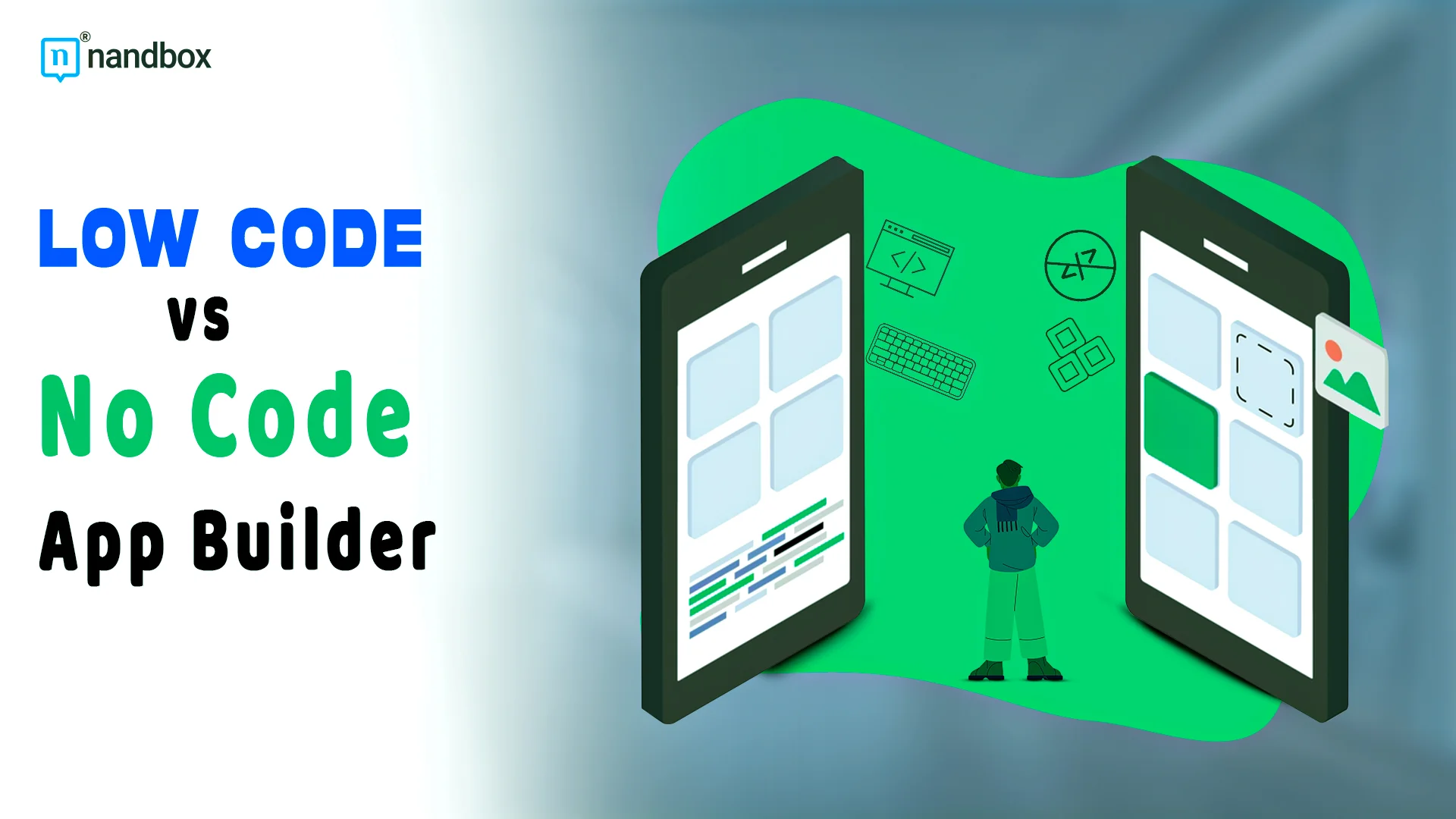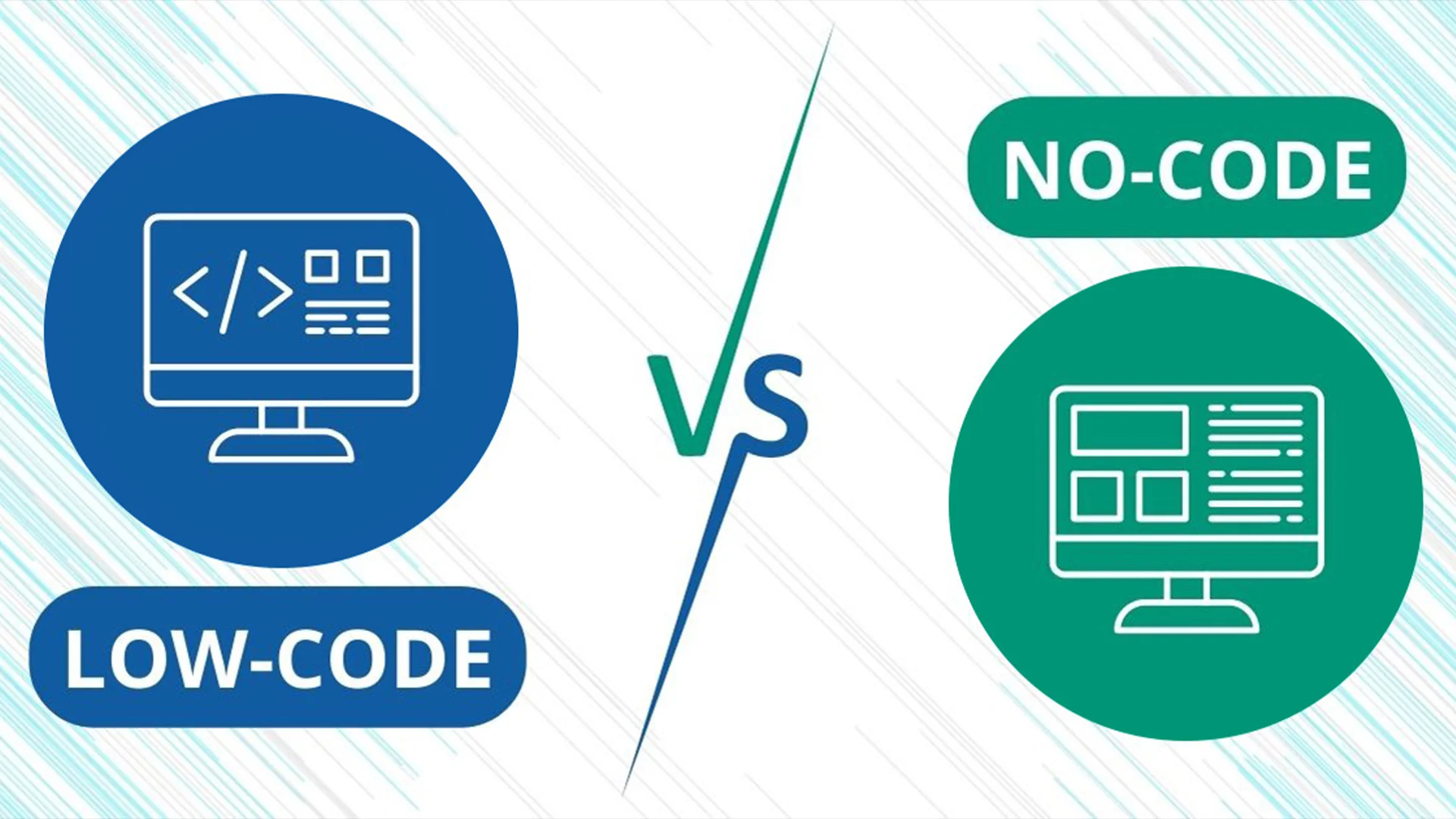With the rising demand for applications from businesses and individuals, understanding efficient ways to bring ideas to life is something that is of enormous importance in today’s digital era. That is why everyone is opting for low-code or no-code solutions. These two revolutionary technologies are helping everyone achieve what they want. Which is to have apps in a faster way than traditional app development methods. In this guide, we will delve into the folds of what is the difference between a low-code vs. no-code app builder. That is, because a lot of people tend to mix them both up and get confused. We will understand the benefits of both options and guide you in selecting the one that best suits your business.
Traditional app development requires you to go through the process of hiring a developer or a group of developers to build your app. Whether it is one person or a group of people depends on the level of complexity that your app vision holds. This hassle has been untangled by the rise of citizen development tools like a low code vs. no code app builders. That is why our main focus in today’s guide is to understand them both and leave it for you to decide which of the two options aligns best with your app vision. Ready? Let’s delve deeper into this topic to learn more.
Low Code Vs. No Code App Builder: What is a Low Code App Builder?
Understanding that a low code app builder offers something different than no code app builders is something that you need to fully comprehend in order to be able to make an informed decision when it comes to choosing the right app development solution for yourself. A low-code app builder is a platform that allows you to create an app with minimal coding. But what does minimal coding mean? It means that you’ll still use coding but in a very simplified way. Think of a low-code app builder as the middle ground you stand on between no-code app development and the traditional methods of app development. This is a platform that typically includes a drag-and-drop interface, pre-designed templates, and integration tools. It simply makes it easier for developers to build complex apps without the need of having to start the coding journey from scratch.
Is low code the right choice for your app development journey and vision? How can you know? If you are a developer or a business owner with a technical team and you want to save time and streamline repetitive coding tasks, these platforms are the ones for you. Let me give you an example. Imagine having a software company that is looking for a rapid way that will help them roll out a new feature. In such a scenario, a low code platform can be the best option that will help you prototype and iterate the feature’s specs faster. Take into consideration that when you’re using a low-code app builder, you’re expected to have a tiny background in coding and programming.
That is, to customize an app fully without facing any troubles. I know that this makes low code app builders less accessible for people who have no coding or technical backgrounds whatsoever; however, this is when no-code solutions enter the field with their shining armor. Low-code platforms shine in collaborative environments where technical and business teams can work together. That is, as they combine coding expertise with business insights. This synergy often results in powerful, tailor-made applications that align closely with all your business needs.
What is a No-Code App Builder?
So what about no-code app builders? What are they and how do they work? Well, like the name suggests, no-code app builders are ones that take simplicity to a whole new level. That is, through allowing people to create visually appealing apps without having to write a single coding line. No-code platforms ask for zero coding requirements. They use intuitive interfaces, pre-made templates, and design tools that are straightforward and simple to understand. That is, to help each and everyone create a functional app with great ease.
Let me give you an example that can best describe the difference between a low code vs. no code app builder. Imagine being a small business owner who wants to create a custom e-commerce app. In this case, you can use a no-code platform to build and launch it without hiring a developer or writing any code yourself. No-code platforms are designed for accessibility, allowing users to focus on their ideas instead of the complexities of programming. But are they for you? Do they align?
These platforms are ideal for startups, entrepreneurs, and small teams who need to bring ideas to life quickly. While they may not offer the deep customization of low-code platforms, their ease of use makes them a popular choice for creating apps like event planners, booking systems, or even basic customer relationship management (CRM) tools.
Key Differences Between Low Code and No Code
So, what sets low-code and no-code apart? One key difference is the level of technical knowledge required. Low-code platforms are designed for developers who need to speed up their work, while no-code platforms are tailored for non-technical users.
Another major distinction is customization. Low-code platforms allow for more in-depth customization, making them better suited for complex or large-scale projects. No-code platforms, on the other hand, prioritize simplicity and speed, which can sometimes limit their flexibility.
Additionally, collaboration plays a significant role. Low-code platforms often foster teamwork between developers and business stakeholders, blending technical expertise with strategic vision. No-code platforms, by contrast, empower individuals or small teams to create apps independently. Ultimately, the choice between the two depends on your needs. Do you need deep customization or just a quick solution? The answer will point you in the right direction.
Benefits of Using Low-Code and No-Code Solutions
You have to keep in mind that both low-code and no-code platforms offer incredible benefits:
- Faster Development Cycles: Traditional coding can take months, but low-code and no-code tools significantly reduce this timeline.
- Cost Efficiency: With fewer development hours required, these platforms save businesses money. With nandbox no-code app builder, you can create fully native iOS and Android apps for less than $100 thanks to its affordable pricing plans.
- Broader Accessibility: Non-technical individuals can contribute directly to app creation, fostering innovation across teams.
For example, imagine a startup that needs an app to manage customer orders. Instead of hiring a team of developers, they can use a no-code platform to launch their app in weeks. All of that is available without all the hassles of needing any experience in programming or coding. On the other hand, a large corporation might use a low-code platform to build a robust internal tool. This will help them save time and meet various complex requirements. These solutions enable businesses of all sizes to create the app of their dreams without facing any hassles or complications.
When to Use Low Code and When to Choose No Code?
Not sure which platform to use? Here’s a quick guide to help you decide. Low-code platforms are a perfect fit if you have access to a technical team or developer resources. They are particularly useful for projects that require advanced functionality or complex integrations, making them ideal for businesses with more intricate app development needs. These platforms also shine in collaborative environments where technical and non-technical stakeholders need to work closely together to bring a project to life.
On the other hand, no-code platforms are perfect for individuals or teams with no coding experience. If you need to build and deploy an app quickly without diving into technical details, no-code solutions are the way to go. They are best suited for straightforward app requirements, such as creating booking systems or event planners. For instance, a financial institution might opt for a low-code platform to build a secure, feature-rich app, leveraging its flexibility and customization options. Meanwhile, a freelance consultant needing a simple scheduling app can turn to a no-code platform for its ease of use and speedy deployment.
The Best No-Code App Builder in 2025’s Market
Now that you have put your mind to creating an app that will help empower your business, let me tell you what the best no-code app builder is that you can use in 2025. Our app builder, nandbox, can help bring your idea to life. It doesn’t matter if you’re an experienced developer or someone who just stepped foot into the realm of app development; nandbox is literally for everyone and anyone. This is not just another no-code app builder that will help you create a fully functional app. nandbox allows you to create native apps. But what are those? Let me enlighten you.
A native app is like a custom-fit cover for your smartphone. One that is built specifically for a particular operating system, like iOS or Android. It uses the device’s native programming languages and features, making it faster, more reliable, and seamlessly integrated with hardware like the camera or calendar. Think of your favorite apps; chances are they’re native, delivering that buttery-smooth performance you love. And that is what I offer you through the usage of nandbox. It is cost-effective, simple to navigate and understand, and varies greatly when it comes to the list of features that you can create your app with. With nandbox, you can create the app that will help you soar in no time and with minimum effort. Sign up, leverage our 14-day free trial, and start now!
How to Create an App Using ChatGPT without Coding On a Budget
Ever wondered how to create an app using ChatGPT? With nandbox App Builder GPT, you can build both iOS and Android native apps using ChatGPT without coding. Just describe what you want in ChatGPT, and once you finish the conversation, the GPT instantly gives you a direct link to nandbox, where your app is already generated and ready to be customized or published.






